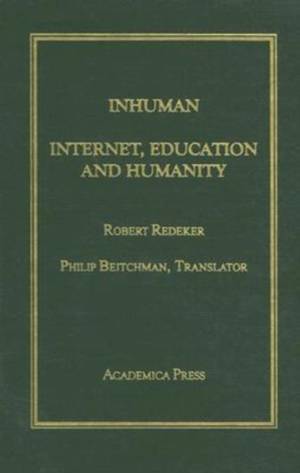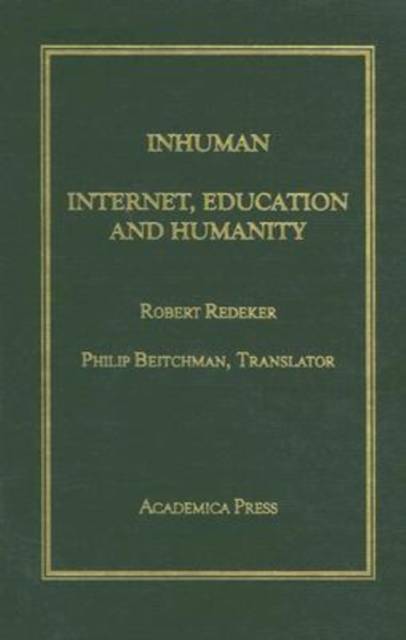
- Afhalen na 1 uur in een winkel met voorraad
- Gratis thuislevering in België vanaf € 30
- Ruim aanbod met 7 miljoen producten
- Afhalen na 1 uur in een winkel met voorraad
- Gratis thuislevering in België vanaf € 30
- Ruim aanbod met 7 miljoen producten
Zoeken
Omschrijving
The transformation of Western civilization into a planetary society of information and communication compels us to pose some philosophical and political questions about the influence of these new technologies on education. This author, a philosopher, journalist, literary critic, and also a member of the board of Les Temps Modernes, has concluded that Information Science and Internet do represent grave dangers for education, since they rather show us a way of avoiding the teacher and teaching ("how not to teach") than help teach. They 'send the message' to teacher, student and public alike that education is merely a matter of accumulating and classifying (triage) information; training and conditioning the students for a lifetime of sitting in front of computer screens at the only time in their lives when they should have the leisure to pace their studies according to the development of their knowledge and understanding. In this process the human presence of the teacher is a vital element, but one that 'wiring up our schools' will reduce, if not eliminate completely, turning the human teacher into the technical instructor and advisor. Underlying the author's reflection on the damage the technologies of information do to school and education is an even more troubling question: must everything that can be done (technologically) be done?
Specificaties
Betrokkenen
- Auteur(s):
- Vertaler(s):
- Uitgeverij:
Inhoud
- Aantal bladzijden:
- 54
- Taal:
- Engels
Eigenschappen
- Productcode (EAN):
- 9781930901339
- Verschijningsdatum:
- 15/07/2003
- Uitvoering:
- Hardcover
- Formaat:
- Ongenaaid / garenloos gebonden
- Afmetingen:
- 160 mm x 241 mm
- Gewicht:
- 294 g

Alleen bij Standaard Boekhandel
+ 92 punten op je klantenkaart van Standaard Boekhandel
Beoordelingen
We publiceren alleen reviews die voldoen aan de voorwaarden voor reviews. Bekijk onze voorwaarden voor reviews.











